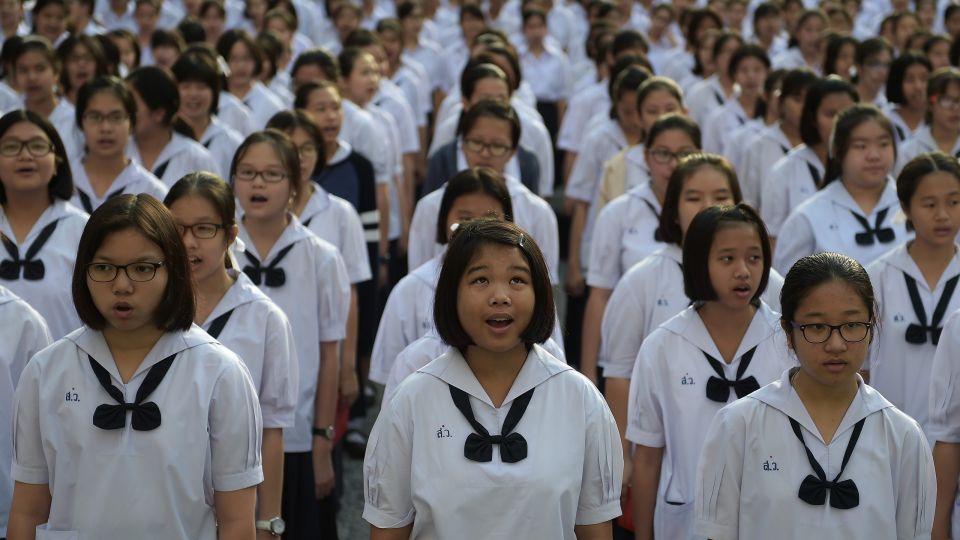June 19, 2018
Despite pouring millions of dollars into its education system, Thailand’s test scores lag far behind its neighbours.
Thailand’s revolving cadre of politicians have long-cited the education system as a necessary area for reform. The last three governments, all under opposing banners, have agreed that Thailand’s school systems need fixing with test scores lagging and an increasing deficit of highly skilled workers.
The past three governments have seen Thailand throwing money into the education system, regularly spending 20 per cent of its annual budget in the area.
However, despite years of massive investment, Thailand still ranks far behind its competitors when it comes to test scores and rankings.
The Programme for International Students Assessment in 2017 ranked Thailand behind Singapore, Malaysia, South Korea, Taiwan and Japan across key subjects including math, science and reading.
Thailand’s standardized test scores also lag woefully behind with the country among the worst scorers in English language proficiency and critical thinking according to several ranking systems.
Thailand’s institutions of higher learning also do not perform well when compared to its international counterparts. Both the Time Higher Education ranking and QS World University Rankings have no Thai universities in their top 300. When compared to neighbours Singapore and Hong Kong, who have multiple universities in the top 50 of world rankings, Thailand has a lot of catching up to do.
Rigid Hierarchy
Critics have argued that Thailand’s education system, with its emphasis on rote-learning and highly hierarchical structure, allows little room for students to question, inquire and develop critical thinking skills.
Instances where students have shunned traditional values and adopted western-like mindsets have made the news with many criticizing the students for a lack of ‘Thainess.’
For example, former Chulalongkorn University student-president Netiwit Chotiphatphaisal made headlines around the country for not taking part in his school’s tradition of prostrating to a statue of King Chulalongkorn as a freshman.
Netiwit was eventually kicked out of the school’s student council for leading a delegation of students away from the oath-taking ceremony – an incident that involved a professor assaulting a student for not taking part.
The Problem
Small incidents, such as those involving Netiwit, point to a larger problem within the Thai education system.
“It is to the benefit of the military government and conservative members of the ruling class that young Thais learn a rigid system from an early age,” said a senior official at Thailand’s Ministry of Education who asked to not be named.
“While we can debate the merits of rigid traditionalism and hierarchy, the end result is that we produce citizens who do not question, who do not inquire and who accept the system. These do not make good scientists, or inventors, or entrepreneurs.”
Since coming to power, Thailand’s ruling junta has attempted – like its democratic predecessors – to change the structure at the Ministry of Education to better test scores.
But rather than changing the rigid structure within the school system, the military has sought to entrench it.
Thailand’s Prime Minister and Junta-Chief Prayuth Chan-ocha said that schools must instill 12 core values into every student. The one-time general mandated that these teachings be printed on large banners and hung from public schools.
The values, stated here without opinion, are as follows:
- Loyalty to the Nation, the Religion, and the Monarchy
- Honesty, sacrifice, endurance, and noble ideology for the greater good
- Gratitude for parents, guardians, and teachers
- Diligence in acquiring knowledge, via school studies and other methods
- Preserving the Thai customs and tradition
- Morality and good will for others
- Correct understanding of democracy with the King as Head of State
- Discipline, respect for law, and obedience to the older citizens
- Constant consciousness to practice good deeds all the time, as taught by His Majesty the King
- Practice of Self-Sufficient Economy in accordance with the teaching of His Majesty the King
- Physical and mental strength. Refusal to surrender to religious sins.
- Uphold the interest of the nation over oneself.


